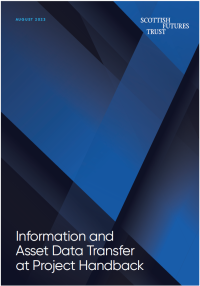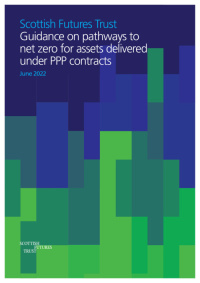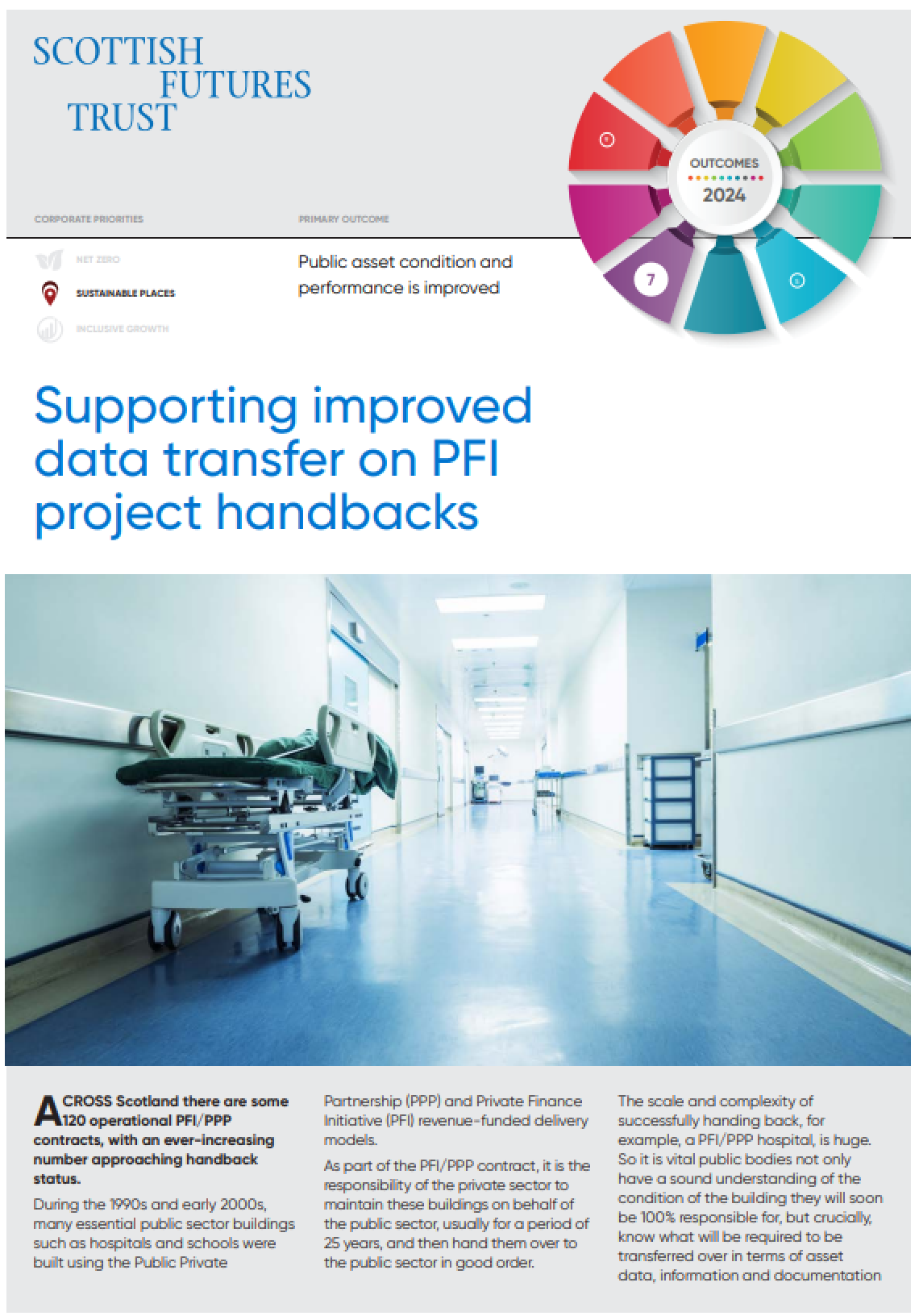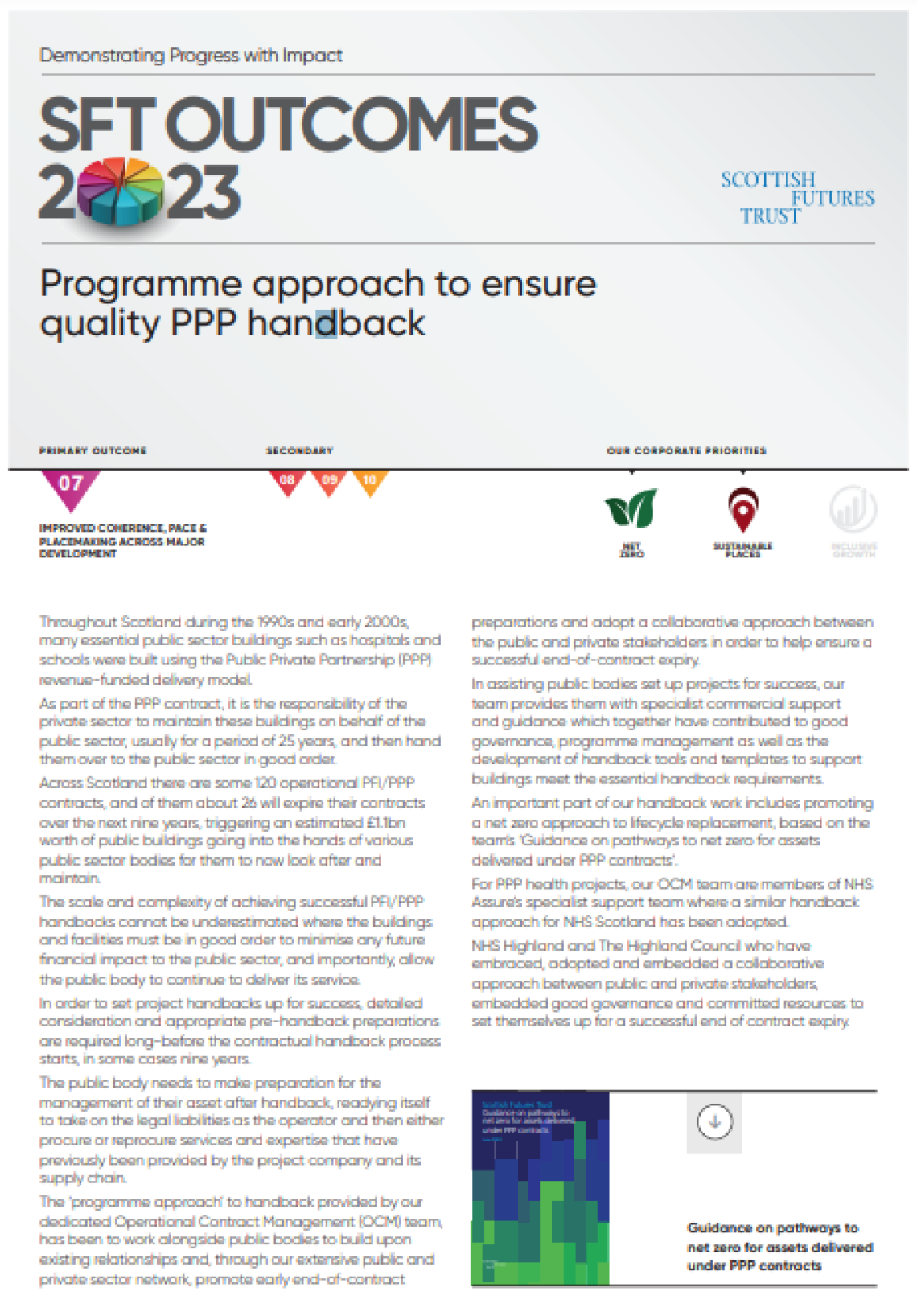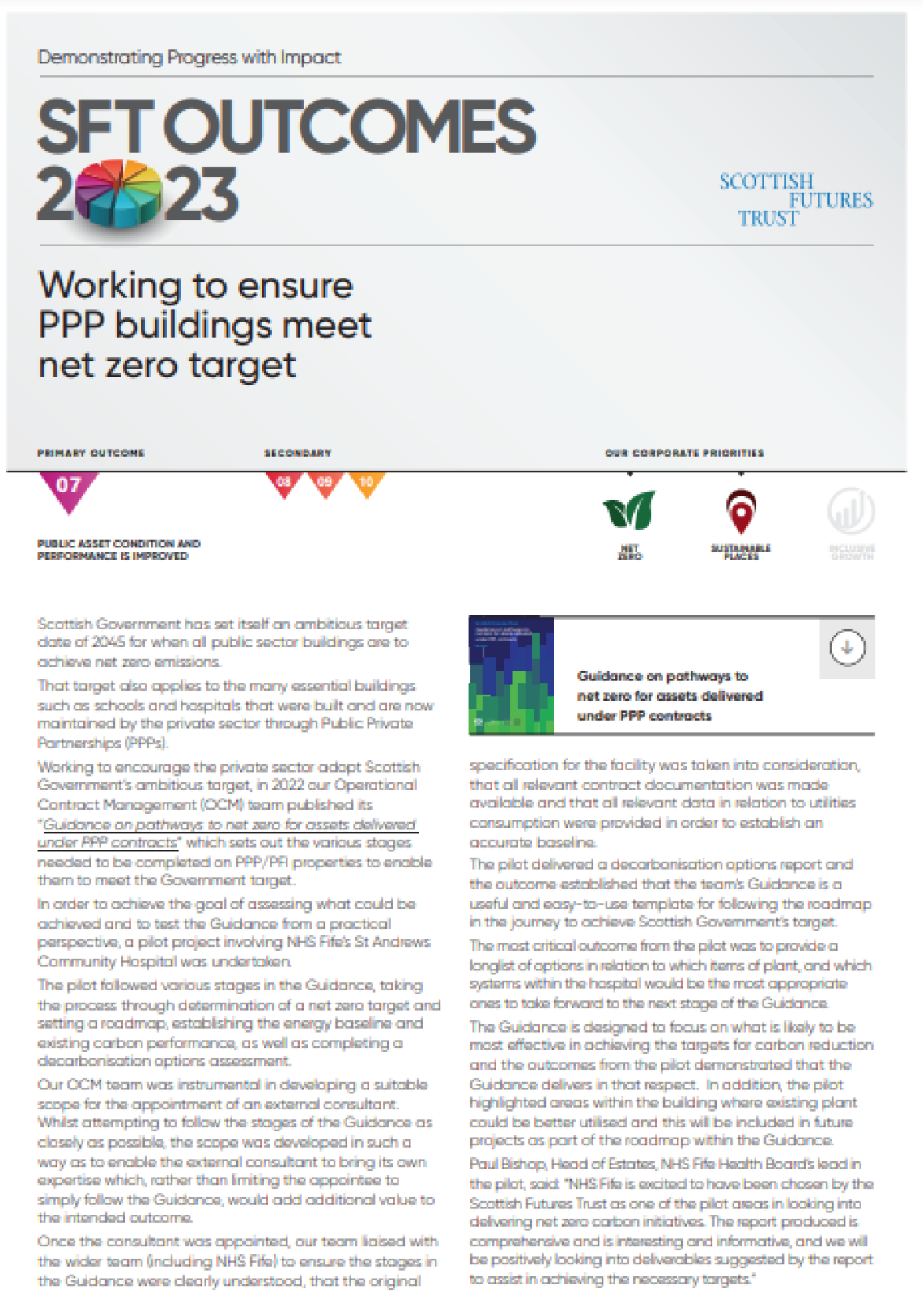Public Private Partnerships

Maximising the value in PPP projects and supporting sustainable, high-quality public infrastructure across Scotland
Throughout the 1990s and early 2000s, many essential buildings such as schools and hospitals were built in Scotland using the Public Private Partnership (PPP) revenue-funded delivery model.
As part of the PPP contract, it is the responsibility of the private sector to maintain these buildings, usually for a period of 25 years and then hand the buildings over to the public sector in good order.
With many of the early PPP projects now coming to the end of their 25-year contracts, our Public Private Partnerships team has been working with public bodies to ensure buildings are handed over to them in good condition, including consideration of alternative approaches to lifecycle replacement during the handback process on the pathway to net zero.
Building on the positive momentum of previous years, our PPP team carries out in-depth and targeted reviews of education and health projects to identify where increased value and savings can be secured.
More recently, we have formed a collaborative working arrangement with the NHS to create a specialist team to support all NHS boards in improving PPP contract management, share best practice and drive value across the country.
The hub and Non-Profit Distributing forms of Public Private Partnerships (PPP) were developed to deliver key public sector assets when capital budget and borrowing powers did not match the investment ambition. These privately financed models are no longer in operation but we continue to report on the budgetary impact and project data. Scottish Government retains a new version of this type of privately financed infrastructure investment tool for public sector assets through the Mutual Investment Model.
We were asked by Scottish Government to examine new profit-sharing finance structures, such as the Welsh Government’s Mutual Investment Model (MIM), with a view to adding to the range of infrastructure investment approaches to help secure the investment required for the National Infrastructure Mission.
In May 2019, we published our Options Appraisal recommending a Scottish version of MIM as the best value-for-money option to deliver additionality over and above current capital and public borrowing sources of investment, which crucially meets the current technical rules for private classification.
The recommended option is based on the Welsh Government’s MIM and replicates many of the value-for-money features delivered by the Scottish Non-Profit-Distributing model, including:
- Competitive tender processes to attract value-for-money project finance
- Focus on wider community benefits and economic stimulus
- Strong project and programme governance and resourcing in place to deliver
- Project diligence and scrutiny on the design and whole-life-cost of the asset
- Use of standard form contracts, assurance processes and robust conditions for funding, benefiting from previous revenue-funded programmes, experience and lessons learned.
The MIM investment model includes the public sector as a co-investor and co-owner of up to 20% of each project delivery company.
We will continue our engagement with public and private bodies on the development of Scottish MIM.
We led the Non-Profit Distributing (NPD) programme as an alternative funding source to allow major infrastructure projects to be built.
NPD was developed to replace the traditional Private Finance Initiative (PFI) model with a number of projects in the transport, health and education sectors now open from where first-class public services are being delivered.
A key requirement of the NPD programme was to deliver local community benefits and support the local economy. Contractual targets were exceeded for the number of work placements, graduates and apprentices employed and the construction phases have supported approximately 8,000 jobs across Scotland.
Contract Documents
Clicking here will take you to an alphabetical list of all available project agreements and financial models for all projects delivered through the Non-Profit Distributing (NPD) programme.
Public Interest Directors and Independent Directors (PID/IDS)
A description of PID and ID roles in NPD Companies and the current director appointments are detailed here.
NPD Investor information
NPD project investors are detailed in the following file - NPD Investors. Updated information will be published annually in February.
NPD Financial Indicators
Weighted Average Cost of Capital (WACC) and Project Internal Rate of Return (IRR) information for the NPD programme and for individual projects which are beyond their confidentiality period is provided in the following file - WACC/Project IRR.
Our team

Alastair Nicol
Senior Associate Director
Alastair heads up SFT’s PPP team and provides specialist commercial and technical support to many public sector organisations as well cross-workstream technical, facilities management and commercial support within SFT.
In addition, Alastair is an alternate hub and hub DBFM company director. He has over 30 years’ experience in the built asset management environment and a proven track record in PPP/PFI/DBFM and hub.
Contact Alastair
Paul Moseley
Senior Associate Director
Paul is a lawyer in SFT’s PPP and Corporate Services teams.
He joined SFT in 2011 after five years in private practice, having previously undertaken engineering, project management and business development roles in the defence, IT and technology transfer sectors. He has a PhD in mathematics and an MBA.
Contact Paul
Mark Pillans
Associate Director
Mark has over 20 years of experience in the PPP sector ranging from advisory roles to funders, project bidding, project delivery and, latterly, management of operational projects.
Mark is part of the PPP team within SFT and provides support to participants across all project types within the accommodation sector.
Contact Mark
Liam Watson
Finance Manager - Projects & Investments
Liam is a Chartered Accountant with over six years’ experience working as an auditor for a variety of entities, including PPP companies, charities, housing associations, and pension actuaries.
Liam works within the SFT Investments team, helping to monitor and report on SFTi’s investments. He also works closely with our Operational Contracts Management and Innovative Finance teams, reporting on and supporting PPP infrastructure programmes.
Contact Liam
